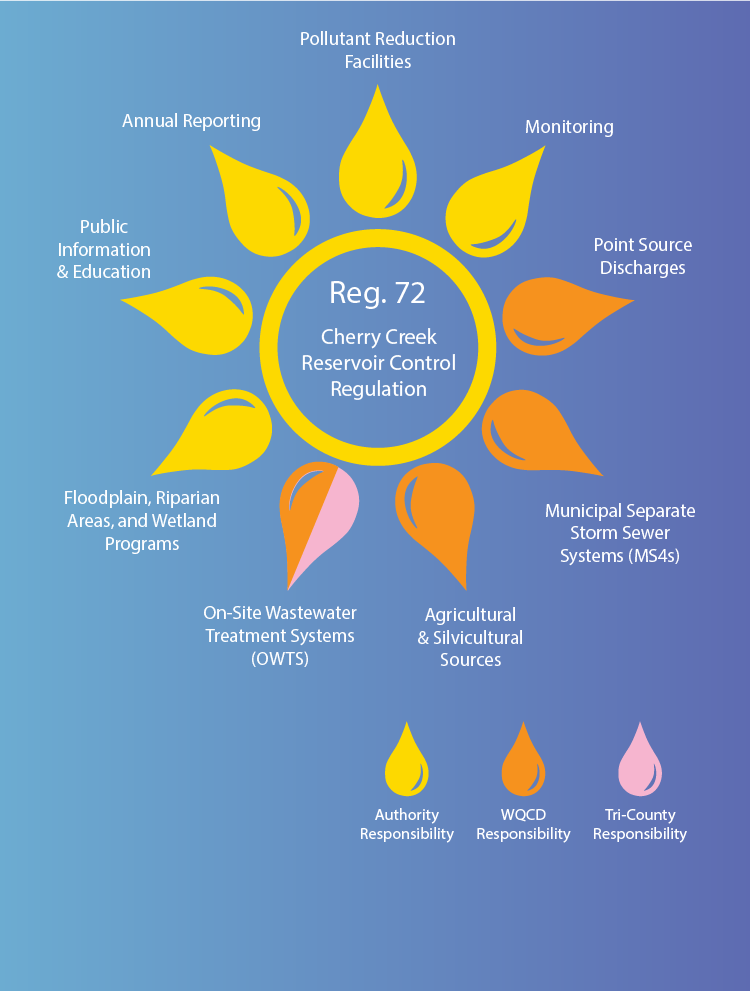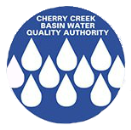
Our Regulation 72 Responsibilities
Just as the State Legislature created the Cherry Creek Basin Water Quality Authority to improve, protect, and preserve the water quality of Cherry Creek and Cherry Creek Reservoir, the Legislature also created a Water Quality Control Commission (Commission) to develop and implement a program for the prevention, control, and abatement of water pollution and for water quality protection throughout the state.
The Commission has broad powers to promulgate water quality rules and regulations. The Commission establishes beneficial uses for waters of the state and assigns numeric and/or narrative water quality criteria to protect the beneficial uses, along with an antidegradation process to protect existing quality.
Once water quality standards are developed, there are several tools that can be used to ensure the standards are achieved. These include options such as issuing wastewater discharge permits with effluent limits, including best management practice (BMP) requirements in stormwater discharge permits, and developing control regulations to address both point and nonpoint sources. Cherry Creek Reservoir has a control regulation, which is designated “Regulation 72” by the Commission. A control regulation can contain limitations on pollutants that are discharged, management requirements, and/or precautionary measures to prevent or minimize pollutants entering the water. The Cherry Creek Reservoir Control Regulation 72 prescribes activities necessary to reduce the inflow of total phosphorus concentrations to Cherry Creek Reservoir to attain the chlorophyll α standard.
Our Section 208 Responsibilities
The Authority is Governor-designated 208 water quality management agency for the Cherry Creek Basin. As such, the Authority is tasked with wastewater treatment, non-point source and water quality planning for the basin.
